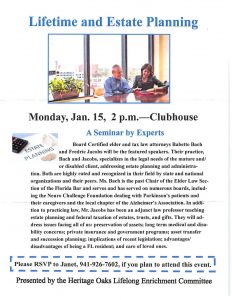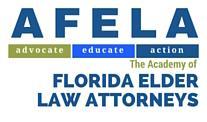The Four Criteria to Qualify for ICP Medicaid in Florida
The Institutional Care Program (ICP) is a Medicaid program that helps Florida’s senior and disabled residents in nursing facilities pay for their long-term care. Eligibility for ICP Medicaid is determined on a case-by-case basis, and there are may rules and regulations that must be followed in order to qualify. There are four main criteria to qualify for ICP Medicaid in Florida:
Income
In order to qualify for ICP Medicaid, applicant’s total gross monthly income cannot exceed three times the SSI Federal Benefit Rate. This number changes yearly, and as of January 1, 2020, the income limit is $2,349.00. For eligibility purposes, any income that the Medicaid applicant receives from any source is counted. Examples include wages from employment, Social Security income, pension payments, annuity payments, alimony payments, IRA withdrawals, and stock dividends.
If the ICP Medicaid applicant has a healthy spouse, the spouse’s income is not counted. If the healthy spouse’s income is less than $2.114.00 per month (the Minimum Monthly Maintenance Needs Allowance or MMMNA), a portion of the applicant’s income may be diverted to the healthy spouse to ensure the he or she as sufficient funds to live.
Individuals with income over the ICP Medicaid income limit may still qualify for Medicaid if they set up a Qualified Income Trust (QIT). Once the QIT is established, the excess income over the income limit is deposited into the trust each month, so that the applicant’s income outside of the trust each month is below the income limit. The QIT must meet specific requirements and be approved by the Department of Children and Families Regional Legal Counsel.
Assets
For the purposes of Medicaid eligibility, an applicant’s assets are classified into two categories: countable and non-countable. Countable assets are considered for Medicaid eligibility purposes, and non-countable assets are not.
Countable assets include cash, stocks, bonds, investments, savings accounts, checking accounts, Certificates of Deposit (CDs), and real property.
Some examples of non-countable or exempt assets are the applicant’s homestead property, certain motor vehicles, irrevocable pre-paid burial plans, burial funds up to $2,500.00 which are kept in a separate account, some life insurance policies, annuities in the payout period, and retirement plans that are being drawn from on a monthly basis.
In order to qualify for ICP Medicaid, an applicant’s countable assets cannot exceed $2,000.00. If the ICP Medicaid applicant has a healthy spouse, the spouse can retain up to a maximum of $128,640.00 of the couple’s jointly held assets.
Level of Care
To qualify for ICP Medicaid, an applicant must require a Skilled or Intermediate level of care in a nursing home, as determined by the Comprehensive Assessment and Review for Long-Term Care Services program (CARES). Applicants must be appropriately placed in a Medicaid facility able to provide the level of care needed. Once an application is submitted, the CARES team will determine the applicant’s appropriate level of care. To determine the level of care, the CARES team will conduct a face-to-face interview with the applicant to collect information on the applicant’s medical history and evaluate how the applicant performs activities of daily living. Activities of Daily Living (ADLs) include:
- Bathing
- Dressing
- Eating
- Maintaining continence
- Toileting
- Transferring
Based on the CARES team’s assessment and the applicants signed physician form certifying that the applicant requires a nursing home level of care (the “3008” form), the CARES team issues a level of care determination.
Transfers
Transfers of any assets or income made by an applicant or an applicant’s healthy spouse may affect the applicant’s ICP Medicaid eligibility. Florida has a Medicaid Look-Back Period, which is a period of 60 months that dates back from the applicant’s Medicaid application date. Upon application, the Department of Children and Families will check to ensure no income or assets were sold or given away for less than fair market value. If a transfer was made to become Medicaid eligible within the look-back period, a period of Medicaid ineligibility may exist. The period of ineligibility will vary depending on the value of the transferred income or asset.
Certain transfers, such as a transfer to a spouse or disabled adult child, are allowable, and do not affect Medicaid eligibility. Other allowable transfers may include the transfer of the homestead property to the following relatives:
- the applicant’s spouse, minor child, or blind or disabled adult child,
- the applicant’s sibling who is a joint owner of the home, and who resided there at least one year prior to the applicant’s institutionalization; or
- the applicant’s child who reside in the home and provided care for at least two years immediately before the applicant’s institutionalization.
It is important to note that not meeting all the criteria above does not mean that you or your loved one is not eligible or cannot become eligible. There are various strategies that can be employed to help you become eligible. The attorneys at Bach, Jacobs & Byrne, P.A. can conduct an in-depth review of your financial and medical situation to develop a plan that is best suited for you and your loved ones needs.




